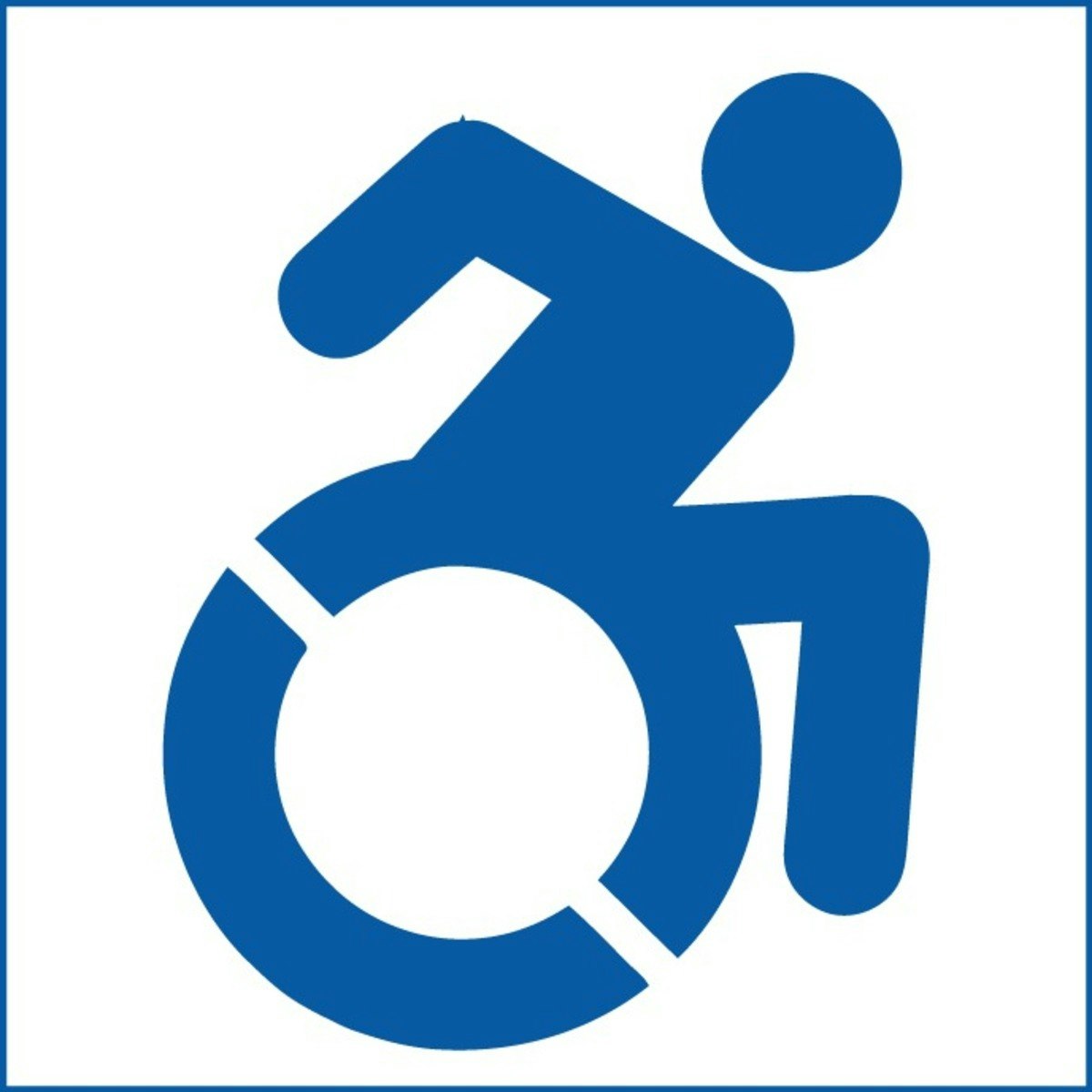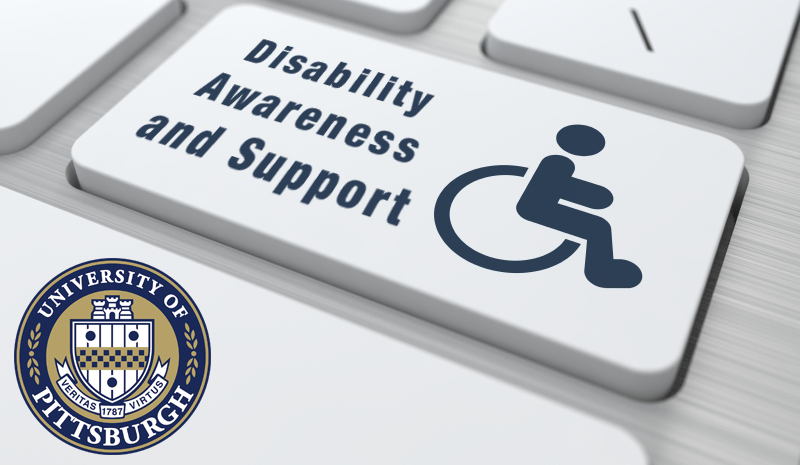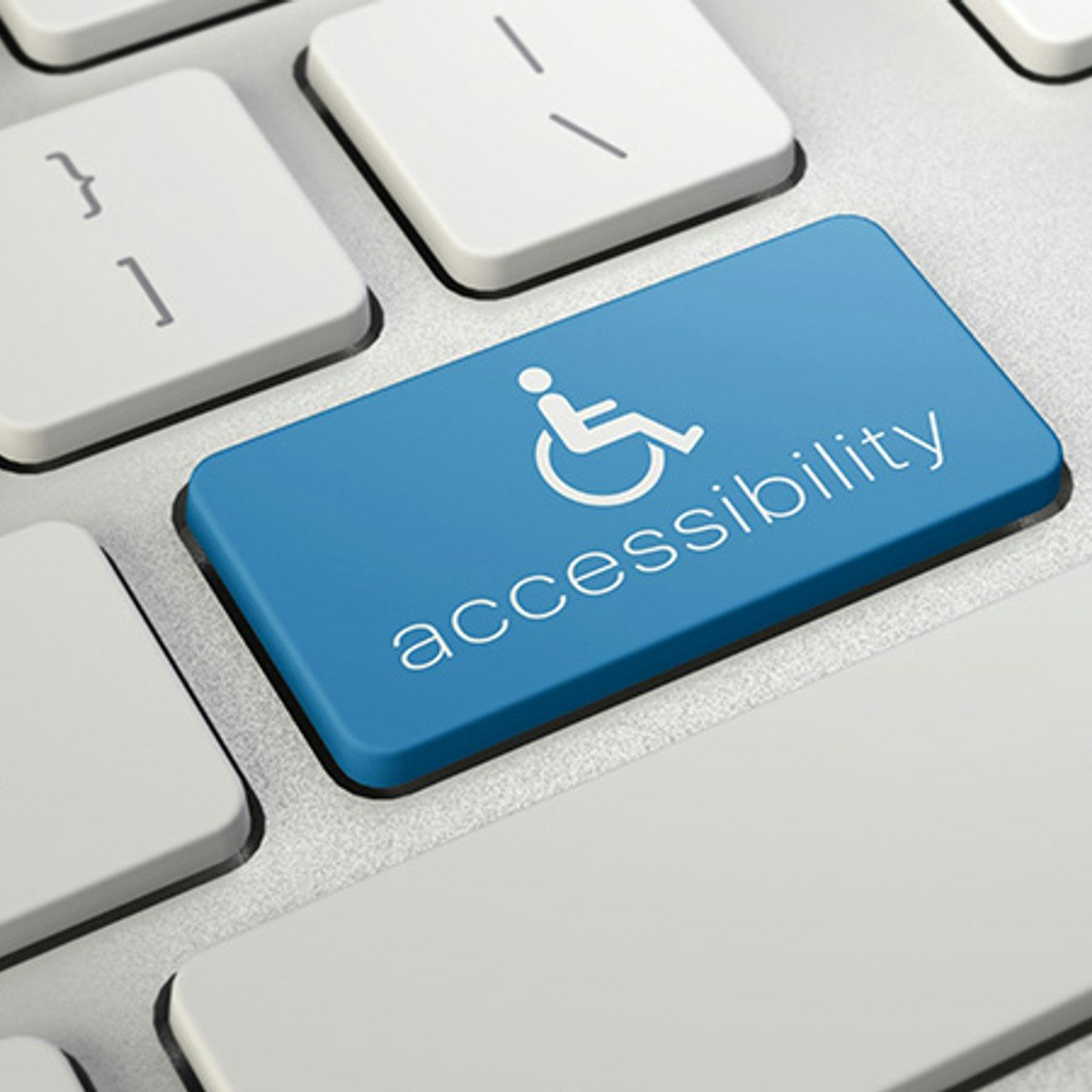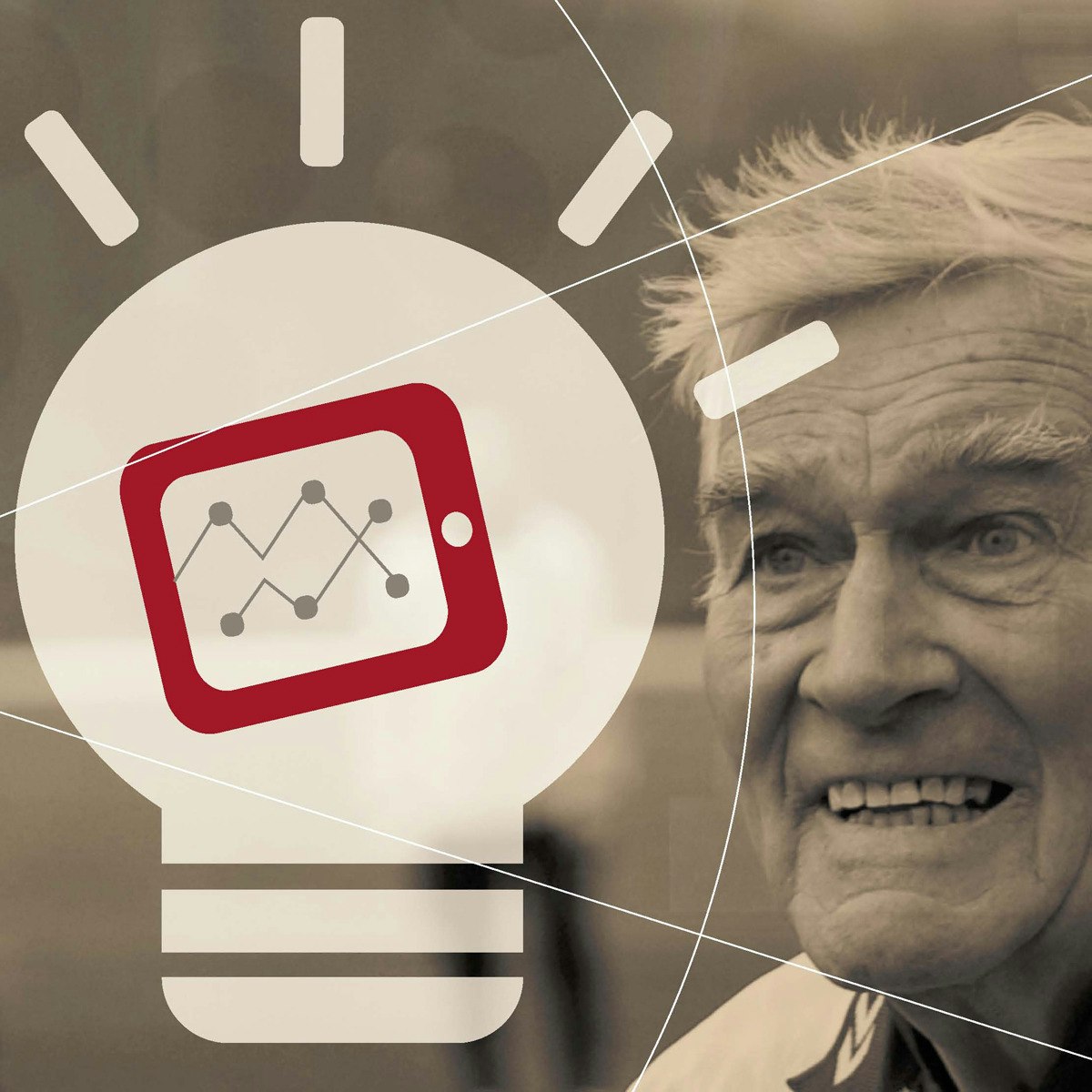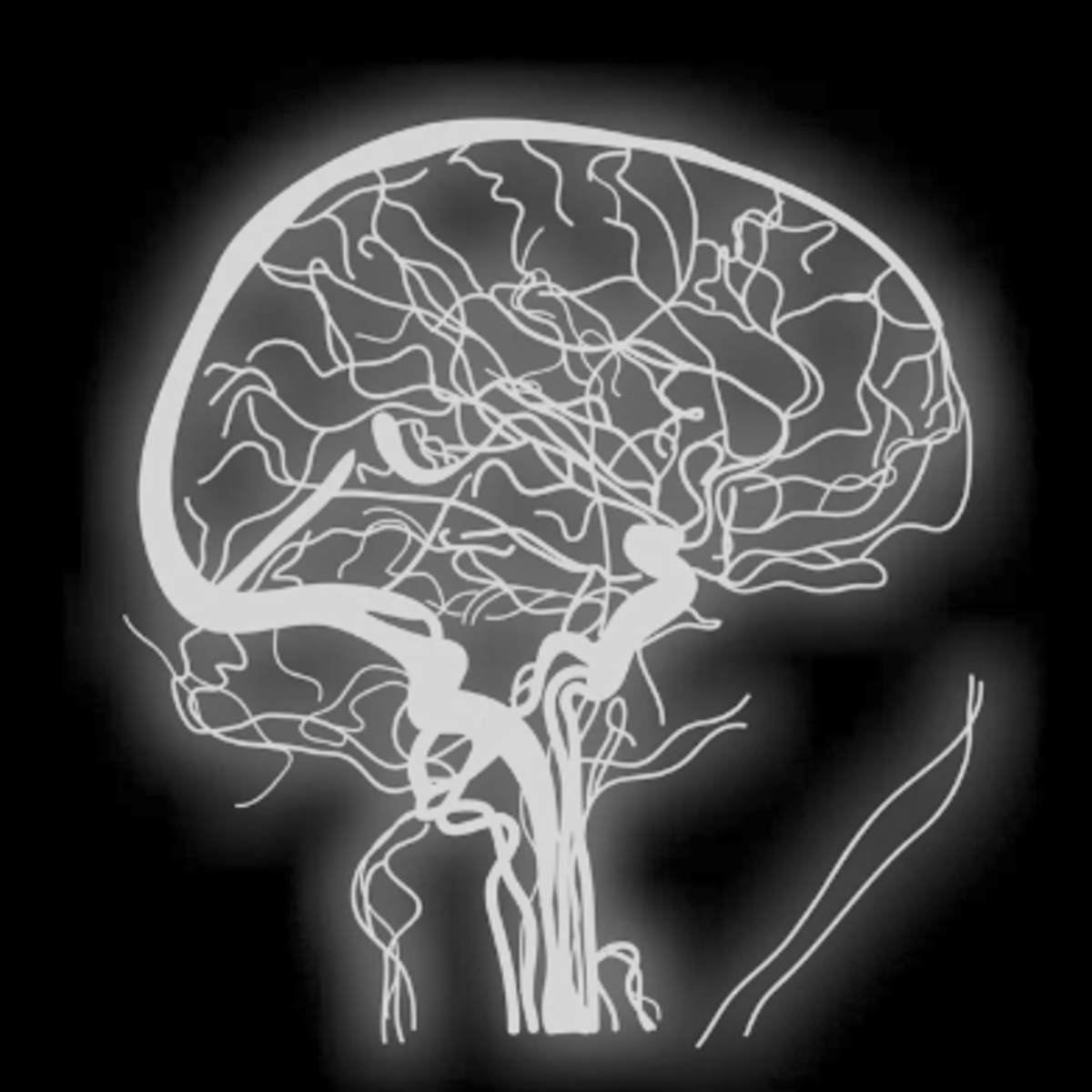Rehabilitation Counselor
Rehabilitation Counselor: A Comprehensive Career Guide
Rehabilitation Counseling is a specialized profession focused on helping individuals with physical, mental, developmental, cognitive, and emotional disabilities achieve their personal, career, and independent living goals. Counselors work collaboratively with clients to overcome barriers hindering their participation in employment, education, and community life. It's a field blending psychology, social work, and vocational guidance, aimed at empowering individuals towards greater self-sufficiency and quality of life.
Working as a Rehabilitation Counselor can be deeply rewarding. You play a direct role in transforming lives, helping people navigate challenges and realize potential they may not have thought possible. The work involves creative problem-solving, requiring tailored strategies for each unique individual. Furthermore, the field offers diverse settings and specializations, allowing for continuous learning and adaptation.
Introduction to Rehabilitation Counseling
What is Rehabilitation Counseling?
Rehabilitation Counseling operates at the intersection of health, psychology, and career development. Its primary aim is to assist individuals facing disabilities – whether physical, mental, emotional, or developmental – to lead more independent and fulfilling lives. This involves a holistic approach, considering the person's strengths, resources, priorities, interests, and concerns within their specific environmental context.
The scope extends beyond just finding employment. It encompasses enhancing personal and social functioning, promoting community integration, supporting educational pursuits, and advocating for the rights and inclusion of people with disabilities. Counselors assess individual needs, develop personalized rehabilitation plans, provide counseling and guidance, and coordinate necessary services and support systems.
Ultimately, rehabilitation counseling seeks to empower individuals by fostering self-advocacy skills, facilitating adjustment to disability, and maximizing participation in all aspects of life. It's about seeing the person beyond the disability and working together to unlock their potential.
Understanding the diverse needs requires a broad perspective. These introductory courses can provide foundational knowledge on disability models and inclusion.
Key theoretical frameworks are explored in foundational texts. These books offer deep dives into the studies and theories underpinning the field.
A Brief History
The roots of rehabilitation counseling trace back to the early 20th century, spurred largely by the needs of returning soldiers after World War I. The U.S. government recognized the necessity of helping disabled veterans reintegrate into society and the workforce, leading to early vocational rehabilitation programs.
Significant growth occurred post-World War II with further legislative acts supporting veterans and, increasingly, civilians with disabilities. The field professionalized over time, establishing specific educational standards, ethical codes, and certification processes. Key legislation, such as the Rehabilitation Act of 1973 and the Americans with Disabilities Act (ADA) of 1990, profoundly shaped the profession by mandating services and prohibiting discrimination.
Today, rehabilitation counseling continues to evolve, influenced by advances in medicine, technology, changing societal attitudes towards disability, and ongoing advocacy for disability rights and inclusion. The focus has shifted towards a more person-centered and empowerment-based model of practice.
Understanding this history provides context for current practices. These texts explore the evolution of disability rights and related social movements.
Populations Served
Rehabilitation counselors work with a diverse range of individuals across the lifespan who experience various types of disabilities. This includes people with physical impairments resulting from injury, illness, or congenital conditions, such as spinal cord injuries, amputations, or chronic pain.
They also serve individuals with psychiatric disabilities, including conditions like depression, anxiety disorders, schizophrenia, and PTSD. Another significant population involves those with cognitive impairments, such as traumatic brain injuries, learning disabilities, or intellectual disabilities. Developmental disabilities, like autism spectrum disorder, are also within the scope.
Furthermore, counselors may specialize in working with specific groups, such as veterans adjusting to civilian life after service-related injuries, older adults facing age-related disabilities, individuals recovering from substance use disorders, or young people transitioning from school to work. The common thread is helping individuals overcome barriers related to their disability.
Objectives and Impact
The core objective of rehabilitation counseling is to enhance the quality of life for individuals with disabilities. This is achieved by facilitating personal and vocational development, promoting independence, and encouraging full community participation. Counselors work towards measurable outcomes, such as successful employment, educational attainment, improved social functioning, and greater self-determination for their clients.
On a broader scale, rehabilitation counseling contributes significantly to society. By helping individuals with disabilities find meaningful employment, the profession boosts economic productivity and reduces reliance on public assistance. It promotes social inclusion and diversity, challenging stereotypes and fostering more accepting communities.
The advocacy role of counselors also plays a part in shaping policies and practices that support disability rights. Ultimately, the profession strives to create a society where disability is not a barrier to opportunity and participation, benefiting both the individuals served and the community as a whole.
Role of a Rehabilitation Counselor
Day-to-Day Work
The daily activities of a rehabilitation counselor are varied and client-centered. A significant portion of time is often spent in direct client interaction, conducting comprehensive assessments to understand an individual's strengths, limitations, needs, and goals. This involves interviews, reviewing medical and psychological records, and sometimes administering vocational or skills tests.
Based on assessments, counselors develop individualized rehabilitation plans collaboratively with clients. This plan outlines specific goals and the steps needed to achieve them. Case management is another key function, involving coordinating various services like medical care, therapy, assistive technology procurement, educational support, and job training.
Counselors provide individual and group counseling sessions focused on adjustment to disability, coping strategies, skill development (e.g., job searching, interviewing), and goal setting. Documentation is also a crucial daily task, maintaining accurate and confidential client records in systems like Electronic Health Records (EHRs).
Case management skills are fundamental to the role. These courses provide introductions to case management principles and practices.
Collaboration is Key
Rehabilitation counselors rarely work in isolation. Effective practice requires extensive collaboration with a wide network of professionals. This includes physicians, psychiatrists, physical therapists, occupational therapists, speech therapists, psychologists, and other healthcare providers to understand medical aspects and coordinate care.
Collaboration also extends to educational professionals, such as teachers, special education staff, and university disability services, particularly when working with students or individuals pursuing further education. Vocational collaboration involves working with employers, job placement specialists, and vocational evaluators to facilitate employment opportunities and workplace accommodations.
Interacting with social workers, family members, and community support agencies is also common to ensure holistic support. Strong communication and teamwork skills are essential for navigating these multidisciplinary relationships and advocating effectively for the client's needs across different systems.
Client Advocacy and Empowerment
A central tenet of rehabilitation counseling is empowering clients to become self-advocates. Counselors educate individuals about their rights under laws like the ADA and help them develop the skills and confidence to speak up for their needs and preferences.
Advocacy often involves intervening on the client's behalf when needed. This might mean negotiating reasonable accommodations with an employer, liaising with educational institutions, helping navigate complex benefits systems (like Social Security Disability Insurance), or connecting clients with legal aid services if discrimination occurs.
The goal is not just to solve immediate problems but to build the client's capacity for self-determination. Empowerment strategies focus on enhancing decision-making skills, fostering resilience, promoting self-awareness, and encouraging active participation in planning and achieving their rehabilitation goals. It's a partnership aimed at shifting control to the individual.
Understanding theories of motivation and behavior change is helpful. This classic text explores motivational interviewing, a key technique in counseling.
Distinctions from Related Fields
While rehabilitation counseling shares similarities with fields like clinical psychology, social work, and occupational therapy, it has a distinct focus. Clinical psychologists primarily diagnose and treat mental health disorders through psychotherapy. While rehabilitation counselors provide counseling, their scope is broader, often incorporating vocational, educational, and independent living goals specifically related to the impact of a disability.
Social workers address psychosocial issues and connect clients with community resources, often focusing on systemic barriers and social justice. Rehabilitation counselors share this focus on resources but uniquely integrate vocational assessment and career counseling tailored to disability.
Occupational therapists focus on improving daily living skills and functional abilities through therapeutic activities. Rehabilitation counselors collaborate with OTs but concentrate more on the overall integration into work, school, and community life, including counseling and advocacy aspects. Each field contributes uniquely to supporting individuals, often working together on multidisciplinary teams.
Required Skills and Competencies
Essential Soft Skills
Success in rehabilitation counseling relies heavily on well-developed soft skills. Active listening is paramount – truly hearing and understanding the client's perspective, needs, and aspirations without judgment. Empathy, the ability to understand and share the feelings of another, is crucial for building trust and rapport.
Strong interpersonal and communication skills are needed to interact effectively with clients from diverse backgrounds, families, employers, and other professionals. Cultural competence is essential for providing sensitive and appropriate services that respect individual differences in background, values, and beliefs.
Patience, persistence, and problem-solving abilities are also key, as progress can sometimes be slow, and obstacles are common. Counselors must be adept at navigating complex situations and finding creative solutions tailored to individual circumstances.
Developing strong interpersonal abilities is a continuous process. These courses touch upon communication, emotional intelligence, and building rapport.
Technical Knowledge and Abilities
Alongside soft skills, rehabilitation counselors need specific technical expertise. This includes proficiency in various assessment methods, such as vocational testing, situational assessments, and functional capacity evaluations, to determine a client's skills, interests, and limitations.
Knowledge of different disabilities and their potential impact on functioning is fundamental. Counselors must be familiar with medical and psychological terminology and be able to interpret reports from other professionals. Developing effective, individualized rehabilitation plans requires strong analytical and planning skills.
Understanding relevant legislation, like the ADA and state-specific vocational rehabilitation laws, is critical for advocacy and ensuring clients receive appropriate services and accommodations. Familiarity with labor market trends, job analysis techniques, and career development theories informs vocational guidance.
Emotional Resilience and Boundaries
Working closely with individuals facing significant challenges can be emotionally demanding. Rehabilitation counselors often encounter stories of trauma, loss, frustration, and systemic barriers. Therefore, emotional resilience – the ability to cope with stress and adversity – is vital for longevity in the profession.
Developing healthy coping mechanisms and practicing regular self-care are essential to prevent burnout. This might involve seeking peer support, engaging in supervision, pursuing hobbies outside of work, and maintaining a healthy work-life balance. Setting clear professional boundaries is also critical.
Counselors must maintain objectivity and avoid over-involvement while still providing compassionate care. Understanding the limits of one's role and knowing when to refer clients for specialized help (e.g., intensive psychotherapy) are important aspects of ethical and effective practice.
Building resilience and managing stress are crucial skills. Online courses offer strategies for mental toughness, mindfulness, and self-care.
Technology Proficiency
In today's world, technology plays an increasing role in rehabilitation counseling. Proficiency in using Electronic Health Record (EHR) or case management software is often required for documentation, tracking client progress, and managing caseloads efficiently.
Familiarity with assistive technology (AT) is also important. This includes understanding different types of AT (e.g., screen readers, mobility devices, communication aids) and how they can help clients overcome functional limitations in daily living, education, and employment. Counselors may assist clients in identifying, selecting, and obtaining appropriate AT.
Furthermore, counselors utilize various online resources for job searching, career exploration, accessing information about community services, and sometimes delivering services via telehealth platforms. Basic computer literacy, including proficiency with standard office software and online communication tools, is essential.
Assistive technologies are rapidly evolving. Staying informed about these tools is important for providing effective support.
Formal Education Pathways
Undergraduate Foundations
While a master's degree is typically required for professional practice as a rehabilitation counselor, a relevant bachelor's degree provides a strong foundation. Common undergraduate majors include psychology, sociology, social work, human services, or related fields.
Coursework in these areas introduces students to fundamental concepts in human behavior, social systems, counseling principles, ethics, and research methods. Classes focusing on abnormal psychology, developmental psychology, personality theories, and social problems can be particularly beneficial.
Gaining volunteer or paid experience in settings that serve individuals with disabilities during undergraduate years is highly recommended. This provides practical exposure to the field and can strengthen applications for graduate programs. Strong academic performance and letters of recommendation are also important.
Introductory psychology courses lay the groundwork for understanding human behavior, a core component of counseling.
Understanding abnormal psychology provides insight into various mental health conditions counselors may encounter.
Master's Degree in Rehabilitation Counseling
The standard entry-level requirement for becoming a rehabilitation counselor is a master's degree in Rehabilitation Counseling or a closely related counseling field with a specialization in rehabilitation. It is crucial to choose a program accredited by the Council for Accreditation of Counseling and Related Educational Programs (CACREP).
Accreditation ensures the program meets rigorous national standards for curriculum, faculty qualifications, and clinical training. CACREP-accredited programs typically require 60 semester credit hours and include supervised practicum and internship experiences totaling hundreds of hours of direct client contact.
The curriculum covers core counseling areas (e.g., theory, ethics, group work, assessment) as well as specialized rehabilitation topics like medical and psychosocial aspects of disability, vocational evaluation, job placement strategies, case management, and disability policy.
Licensure and Certification
Graduating from an accredited master's program is the first step towards professional credentialing. Most rehabilitation counselors pursue the Certified Rehabilitation Counselor (CRC) credential, administered by the Commission on Rehabilitation Counselor Certification (CRCC). Eligibility typically requires a specific master's degree and passing the CRC Examination.
In addition to the CRC, many states require counselors to obtain licensure to practice independently, often as a Licensed Professional Counselor (LPC) or a similar title. State licensure requirements vary but generally include a specific master's degree (often CACREP-accredited), supervised post-master's experience (typically 2,000-4,000 hours), and passing a state-recognized licensing exam (like the National Counselor Examination or NCMHCE, in addition to sometimes the CRC exam).
It's essential to research the specific licensure requirements in the state(s) where you intend to practice, as regulations differ regarding required education, experience hours, supervision standards, and examinations. Maintaining credentials involves ongoing continuing education.
Preparing for licensure exams is a critical step. Specialized preparation courses can be valuable resources.
Doctoral Studies and Advanced Roles
For those interested in leadership, advanced clinical practice, research, or academia, pursuing a doctoral degree (Ph.D. or Ed.D.) in Counselor Education and Supervision with a specialization in rehabilitation counseling is an option. These programs prepare individuals for roles as university faculty, researchers, clinical supervisors, program administrators, and policy analysts.
Doctoral programs typically involve advanced coursework in counseling theory, research methodology, statistics, supervision, teaching, and leadership. A significant component is conducting original research culminating in a dissertation.
Graduates with doctoral degrees contribute to the field by training future counselors, conducting research to advance evidence-based practices, developing innovative programs, and advocating for policies that improve the lives of people with disabilities at a systemic level.
Advanced study often involves delving deeper into research methodologies.
Alternative Training and Skill Development
Specialized Certificate Programs
For individuals already holding a related degree or working in an adjacent field, specialized certificate programs offer a way to gain specific competencies in rehabilitation counseling areas without completing a full master's degree. These might focus on topics like vocational evaluation, assistive technology, supported employment, or psychiatric rehabilitation.
Online platforms and universities offer various certificate options. While these typically don't qualify individuals for licensure as LPCs or CRC certification on their own, they can enhance skills for specific roles within the broader rehabilitation field or serve as stepping stones towards further education.
These programs can be particularly useful for professionals like occupational therapists, social workers, or human resource specialists seeking to expand their knowledge of disability issues and rehabilitation practices relevant to their work.
Specialized knowledge in areas like addiction or supporting specific populations can be enhanced through focused training.
Workshops and Continuing Education
The field of rehabilitation counseling is constantly evolving, necessitating ongoing learning. Workshops, seminars, and conferences offer opportunities to stay updated on best practices, emerging trends, new research findings, and specific therapeutic techniques like trauma-informed care or motivational interviewing.
Professional organizations, universities, and specialized training institutes frequently offer short-term training events. Online platforms also provide a wealth of continuing education courses accessible from anywhere. These are crucial not only for skill enhancement but also for meeting the continuing education requirements needed to maintain licensure and certification.
Topics might range from specific disability populations (e.g., working with individuals on the autism spectrum) to ethical considerations, advanced assessment techniques, or updates in disability legislation. Lifelong learning is a hallmark of the profession.
Techniques like Acceptance and Commitment Therapy (ACT) and Cognitive Behavioral Therapy (CBT) are often subjects of continuing education.
Self-Directed Learning and Online Resources
For those exploring the field or seeking to supplement formal education, self-directed learning through online resources can be invaluable. Platforms like OpenCourser aggregate thousands of courses from various providers, covering topics in psychology, counseling, social work, healthcare, and personal development.
While online courses alone cannot replace a formal degree for licensure, they offer accessible and often affordable ways to build foundational knowledge, explore specific interest areas (like mental health or specific therapies), and develop complementary skills (e.g., communication, resilience).
Reading professional journals, following reputable blogs, and engaging with online communities of practice are other ways to stay informed. OpenCourser's Learner's Guide provides tips on structuring self-learning paths and making the most of online educational resources.
Courses focusing on mental wellness and positive psychology provide valuable perspectives for counselors.
Cross-Training from Adjacent Fields
Professionals working in related fields like social work, occupational therapy, special education, or human resources may find opportunities to cross-train or transition into rehabilitation counseling roles, particularly if they pursue the required master's degree and credentials.
Skills and knowledge from these adjacent fields are often transferable. For example, a social worker's understanding of community resources and systems advocacy, an occupational therapist's expertise in functional assessment, or a special education teacher's experience with learning disabilities can be valuable assets in rehabilitation counseling.
For those considering a career pivot, taking introductory online courses or pursuing a graduate certificate in rehabilitation counseling can provide a clearer understanding of the field and help determine if pursuing a full master's degree is the right path. It requires commitment, but the underlying passion for helping others often bridges these related professions.
Career Progression for Rehabilitation Counselors
Starting Your Career
Entry-level positions for newly graduated rehabilitation counselors often involve direct client service. Common titles include Case Manager, Vocational Specialist, Job Coach, or Rehabilitation Counselor within state vocational rehabilitation agencies, community rehabilitation programs, or non-profit organizations.
In these roles, individuals gain hands-on experience conducting assessments, developing rehabilitation plans, providing counseling, coordinating services, and facilitating job placement under supervision. This period is crucial for honing clinical skills and working towards full licensure (LPC) and certification (CRC), which typically requires accumulating supervised practice hours.
Early career roles provide exposure to diverse client populations and work settings, helping counselors identify areas of interest for future specialization. Building a strong professional network and seeking mentorship are valuable during this phase.
Mid-Career Advancement
With experience, licensure, and certification, rehabilitation counselors can advance to roles with greater responsibility and autonomy. Opportunities may arise for positions like Clinical Supervisor, overseeing and mentoring junior counselors or interns.
Other mid-career paths include Program Coordinator or Manager roles, involving administrative duties, program development, and staff management within rehabilitation agencies or organizations. Some counselors may choose to specialize in a particular area, such as psychiatric rehabilitation, substance abuse counseling, transition services for youth, or working with specific disability groups (e.g., veterans, individuals with visual impairments).
Developing expertise in areas like assessment, assistive technology, or forensic rehabilitation (providing expert testimony in legal cases) can also lead to specialized consulting roles or private practice opportunities.
Leadership and Beyond
Experienced rehabilitation counselors may move into higher-level leadership positions within organizations, such as Director of Rehabilitation Services or agency Administrator. These roles involve strategic planning, budgeting, policy development, and overseeing large teams or multiple programs.
Some pursue opportunities in policy advocacy, working for government agencies or non-profit organizations to influence legislation and public policy related to disability rights and rehabilitation services. Others transition into academia, teaching and conducting research at universities, often requiring a doctoral degree.
Entrepreneurial counselors might establish their own private practices or consulting firms, offering specialized assessment, counseling, or expert witness services. Leadership roles require strong management skills, policy knowledge, and a vision for improving rehabilitation services.
Salary Expectations
Salaries for rehabilitation counselors vary based on factors like education level, certifications (CRC, LPC), years of experience, geographic location, work setting (public vs. private), and specific job responsibilities. Entry-level positions typically offer modest salaries, increasing with experience and credentials.
According to the U.S. Bureau of Labor Statistics (BLS), the median annual wage for rehabilitation counselors was $41,710 in May 2023. However, this figure encompasses a wide range, with the lowest 10 percent earning less than $31,600 and the highest 10 percent earning more than $67,480.
Counselors working in state government or hospitals may have different salary scales than those in non-profit organizations or private practice. Supervisory and administrative roles generally command higher salaries. While not typically among the highest-paid professions, many find deep satisfaction in the meaningful impact of their work.
Work Settings and Specializations
Public vs. Private Sector Employment
Rehabilitation counselors find employment across both public and private sectors. State vocational rehabilitation (VR) agencies are major employers, providing services mandated by federal law to help eligible individuals with disabilities prepare for, obtain, and maintain employment.
Other public sector settings include federal agencies like the Department of Veterans Affairs (VA), offering specialized services to veterans, as well as public schools (assisting students with disabilities in transition planning) and correctional facilities.
In the private sector, counselors may work for non-profit community rehabilitation programs, private rehabilitation companies (often contracting with insurance carriers for workers' compensation or disability cases), hospitals, mental health clinics, substance abuse treatment centers, or establish their own private practices.
Niche Areas and Specializations
The broad field of rehabilitation counseling allows for various specializations based on population served or type of service provided. Some counselors focus on psychiatric rehabilitation, working with individuals with serious mental illness on recovery, community integration, and employment goals.
Others specialize in substance use disorder counseling, assisting individuals in recovery with co-occurring disabilities or vocational challenges. Geriatric rehabilitation focuses on the needs of older adults experiencing age-related disabilities, helping them maintain independence and quality of life.
Further specializations include working with individuals who are deaf or hard of hearing, blind or visually impaired, have traumatic brain injuries, developmental disabilities, or specific physical disabilities. Vocational evaluation and forensic rehabilitation are other specialized practice areas.
Specializing often requires additional training or certification. Courses focusing on specific populations or conditions can support specialization.
Telehealth and Remote Opportunities
The rise of telehealth has expanded opportunities for rehabilitation counselors to provide services remotely. Using secure video conferencing platforms, counselors can conduct assessments, provide counseling sessions, and offer vocational guidance to clients who may have transportation barriers or live in remote areas.
Telehealth can increase access to services, particularly for individuals in rural communities or those with mobility limitations. It requires counselors to be proficient with technology and adapt their communication skills for virtual interactions. Ensuring client privacy and confidentiality in a digital environment is paramount.
While not all aspects of rehabilitation counseling (like hands-on assessments or job site visits) can be done remotely, telehealth offers flexibility for both counselors and clients, representing a growing trend in service delivery within the field.
Understanding the nuances of telehealth is becoming increasingly important.
International Perspectives
While this guide focuses primarily on the U.S. context, rehabilitation counseling is an international profession. Principles and practices may vary across countries based on cultural norms, healthcare systems, social policies, and disability legislation.
Opportunities may exist for U.S.-trained counselors to work abroad, particularly with international organizations or in countries seeking to develop their rehabilitation services. This often requires understanding local contexts, language proficiency, and potentially meeting different credentialing requirements.
Conversely, international perspectives and models of disability support can enrich the practice within the U.S. Engaging with international research and professional networks fosters cross-cultural learning and a broader understanding of global disability issues.
Ethical Challenges in Rehabilitation Counseling
Confidentiality in Team Settings
Rehabilitation counselors frequently work in multidisciplinary teams, sharing information to coordinate client care. This collaborative environment presents ethical challenges related to maintaining client confidentiality. Counselors must carefully navigate sharing necessary information while protecting sensitive personal details.
Obtaining informed consent from clients regarding information sharing is crucial. Counselors must clearly explain who information will be shared with, for what purpose, and the potential limits of confidentiality within a team setting. Adhering to privacy regulations like HIPAA (Health Insurance Portability and Accountability Act) is essential.
Ethical dilemmas can arise when team members have differing views on the necessity of sharing certain information or when systemic pressures conflict with client privacy preferences. Strong ethical reasoning and clear communication are vital.
Understanding ethical principles is fundamental to the profession. These resources delve into ethical considerations in mental health fields.
Advocacy vs. Systemic Constraints
A core ethical responsibility of rehabilitation counselors is to advocate for their clients' rights and needs. However, counselors often work within systems (e.g., government agencies, insurance companies) that have rules, regulations, and resource limitations that can constrain advocacy efforts.
Ethical tensions can emerge when advocating for a client's desired outcome conflicts with agency policy, funding availability, or perceived system limitations. Counselors must balance zealous advocacy with realistic expectations and navigate these systems effectively and ethically.
This involves understanding the system's constraints, finding creative solutions within the rules, documenting advocacy efforts, and knowing when and how to challenge policies that unfairly disadvantage clients, all while maintaining professional integrity.
Burnout Prevention and Self-Care
The emotionally demanding nature of rehabilitation counseling puts practitioners at risk of burnout – a state of emotional, physical, and mental exhaustion caused by prolonged stress. Ethical practice requires counselors to monitor their own well-being and take proactive steps to prevent burnout.
This includes engaging in regular self-care activities, maintaining healthy work-life boundaries, seeking supervision and peer support, and recognizing personal limits. Ignoring signs of burnout can impair judgment, reduce empathy, and negatively impact the quality of client care, raising ethical concerns.
Organizations also have an ethical responsibility to create supportive work environments that promote counselor well-being, manage caseloads reasonably, and provide resources for stress management and professional development.
Courses focusing on resilience, stress management, and mindfulness can provide valuable tools for preventing burnout.
Current Issues in Disability Rights
Rehabilitation counselors operate within the broader context of the disability rights movement and evolving societal understanding of disability. Staying informed about current debates and ethical issues in disability rights is crucial for culturally competent and ethical practice.
Topics may include debates around inclusion versus specialized services, the ethics of genetic testing and selective abortion, challenges in implementing the ADA, representation of disability in media, intersectionality (how disability interacts with race, gender, sexual orientation), and critiques of the medical model versus social models of disability.
Engaging with these complex issues helps counselors critically examine their own biases, advocate more effectively, and contribute to promoting a more just and equitable society for people with disabilities. Professional ethics codes often require ongoing education on cultural competence and social justice issues.
Understanding different models and theories of disability is key to navigating these debates.
Job Market Trends and Future Outlook
Impact of Healthcare and Social Policies
The job market for rehabilitation counselors is influenced by changes in healthcare policy, disability legislation, and funding for social services. Policies that expand access to healthcare, mental health services, and vocational rehabilitation programs can increase demand for counselors.
Conversely, budget cuts or changes in eligibility criteria for state or federal programs can impact employment opportunities, particularly in the public sector. Ongoing advocacy efforts by professional organizations and disability rights groups play a role in shaping policies that support the profession and the individuals it serves.
Understanding the policy landscape and potential impacts of legislative changes is important for career planning and adapting service delivery models.
Demand Drivers
Several factors contribute to the demand for rehabilitation counselors. The aging U.S. population is leading to an increase in age-related disabilities, requiring services to help older adults maintain independence and quality of life. Increased public awareness and reduced stigma surrounding mental health conditions are boosting demand for mental health and substance abuse counseling, including rehabilitation services.
Continued recognition of the needs of veterans returning with physical and psychological injuries also drives demand, particularly within the VA system. Furthermore, advancements in medical care mean more people are surviving injuries and illnesses that result in long-term disabilities, requiring rehabilitation support.
The BLS projects employment of rehabilitation counselors to grow 2 percent from 2023 to 2033, which is about average for all occupations. Approximately 8,600 openings are projected each year, on average, over the decade, primarily due to the need to replace workers who transfer to different occupations or exit the labor force.
Technology and Skill Resilience
While technology enhances aspects of rehabilitation counseling (e.g., telehealth, EHRs, assistive tech), the core functions requiring human empathy, complex problem-solving, relationship-building, and nuanced clinical judgment are less susceptible to automation compared to routine tasks.
Skills like active listening, critical thinking, cultural competence, ethical decision-making, and the ability to provide individualized counseling and advocacy remain essential and uniquely human. Counselors who embrace technology as a tool while strengthening these core competencies will be well-positioned for the future.
Continuous learning, particularly in areas like data-informed practice, telehealth delivery, and advancements in assistive technology, will enhance career resilience.
Emerging Research and Practice Areas
Research continues to shape the field, leading to new evidence-based practices and areas of focus. Growing areas include integrated care models (combining physical health, mental health, and substance abuse treatment), customized employment strategies, peer support services, and trauma-informed approaches across various settings.
Research on the social determinants of health is highlighting the need for counselors to address systemic barriers like poverty, discrimination, and lack of access to education and housing. Advances in neuroscience offer new insights into brain injury rehabilitation and cognitive therapies.
Staying abreast of research through journals, conferences, and continuing education allows counselors to incorporate the latest findings into their practice, improving client outcomes and contributing to the field's ongoing development.
Neuroscience and its application to therapy and personal development is a growing area of interest.
Frequently Asked Questions
Can I become a rehabilitation counselor without a master's degree?
Generally, a master's degree in Rehabilitation Counseling (or a closely related field meeting specific requirements) from an accredited institution is required to become a Certified Rehabilitation Counselor (CRC) and to obtain state licensure as a professional counselor (e.g., LPC). These credentials are often necessary for independent practice and many employment settings.
However, individuals with bachelor's degrees in related fields (like psychology, social work, human services) might find entry-level positions in the broader human services or disability support field, such as Case Manager Assistant, Job Coach, or Direct Support Professional. These roles typically operate under the supervision of a credentialed professional.
While these positions offer valuable experience, advancement opportunities and scope of practice are usually limited without the master's degree and associated credentials. Pursuing the master's degree is the standard pathway for a full professional career as a rehabilitation counselor.
How does licensure reciprocity work across states?
Licensure reciprocity, the ability for a license obtained in one state to be recognized in another, varies significantly for counselors. While the CRC certification is nationally recognized, state licensure (LPC) is specific to each state board.
Some states have formal reciprocity agreements, allowing licensed counselors from certain other states to obtain licensure more easily, provided they meet specific criteria. However, many states require counselors licensed elsewhere to apply for licensure by endorsement, which involves submitting documentation of their education, supervised experience, and exam scores for review against the new state's requirements.
Requirements can differ in terms of specific coursework, required exam (some states require the NCMHCE instead of or in addition to the NCE/CRC), or hours of supervised experience. It's crucial to contact the licensing board of the state you plan to move to well in advance to understand their specific requirements for endorsement or reciprocity.
What advancement opportunities exist beyond direct client care?
While many rehabilitation counselors build fulfilling careers in direct client service, numerous advancement opportunities exist beyond this role. With experience and often additional training or education, counselors can move into supervisory or management positions, overseeing teams and programs within rehabilitation agencies.
Other paths include roles in program development, quality assurance, administration, training, or policy analysis within government agencies or non-profit organizations. Some specialize in areas like vocational evaluation, forensic rehabilitation (serving as expert witnesses), or assistive technology consulting.
Opportunities also exist in higher education as faculty members (typically requiring a doctorate) or in research. Starting a private practice or consulting firm is another option for experienced, credentialed counselors seeking autonomy.
Is prior personal experience with disabilities required?
No, prior personal experience with a disability is not a requirement to become a rehabilitation counselor. The profession welcomes individuals from all backgrounds who possess the necessary education, skills, empathy, and commitment to supporting people with disabilities.
While personal experience can offer valuable insights and perspectives, the core competencies of the profession are developed through formal education, supervised training, and ongoing professional development. Essential qualities include empathy, cultural sensitivity, strong communication skills, ethical judgment, and a solid understanding of counseling principles and disability issues.
What matters most is the ability to build rapport with clients, understand their unique experiences and goals, and apply evidence-based practices effectively, regardless of one's personal history.
How competitive are graduate program admissions?
Admission competitiveness for master's programs in Rehabilitation Counseling varies depending on the specific university and program reputation. Generally, accredited programs seek candidates with a strong academic background (typically a GPA of 3.0 or higher in relevant undergraduate coursework), letters of recommendation highlighting relevant skills and potential, and a compelling personal statement outlining interest in the field.
Relevant volunteer or work experience in human services or with populations with disabilities can significantly strengthen an application. Some programs may require Graduate Record Examinations (GRE) scores, though this requirement is becoming less common.
It's advisable to research specific program requirements and admission statistics. Applying to multiple accredited programs can increase the chances of acceptance. Demonstrating a clear understanding of the profession and a genuine commitment to its values is key.
What are common misconceptions about the field?
One common misconception is that rehabilitation counseling is solely focused on job placement. While vocational rehabilitation and employment are significant components, the field is much broader, encompassing counseling for personal adjustment, community integration, independent living skills, educational support, and overall quality of life enhancement.
Another misconception is that counselors only work with individuals with physical disabilities. In reality, they serve diverse populations with psychiatric, cognitive, developmental, sensory, and emotional disabilities as well. Some may also mistakenly equate rehabilitation counseling with physical or occupational therapy; while collaborative, these are distinct professions with different training and scope of practice.
Finally, some assume the work is inherently depressing. While counselors face challenges, the focus is on empowerment, resilience, and helping individuals achieve meaningful goals, which can be incredibly rewarding and inspiring.
Embarking on a career as a Rehabilitation Counselor is a commitment to empowering individuals and fostering a more inclusive society. It requires dedication, empathy, and continuous learning, but offers the profound reward of making a tangible difference in people's lives. If you are drawn to a career that combines counseling skills with practical problem-solving and advocacy, rehabilitation counseling may be a fulfilling path to explore. Utilize resources like OpenCourser's Career Development section to find courses that can help build foundational skills and explore related areas.


